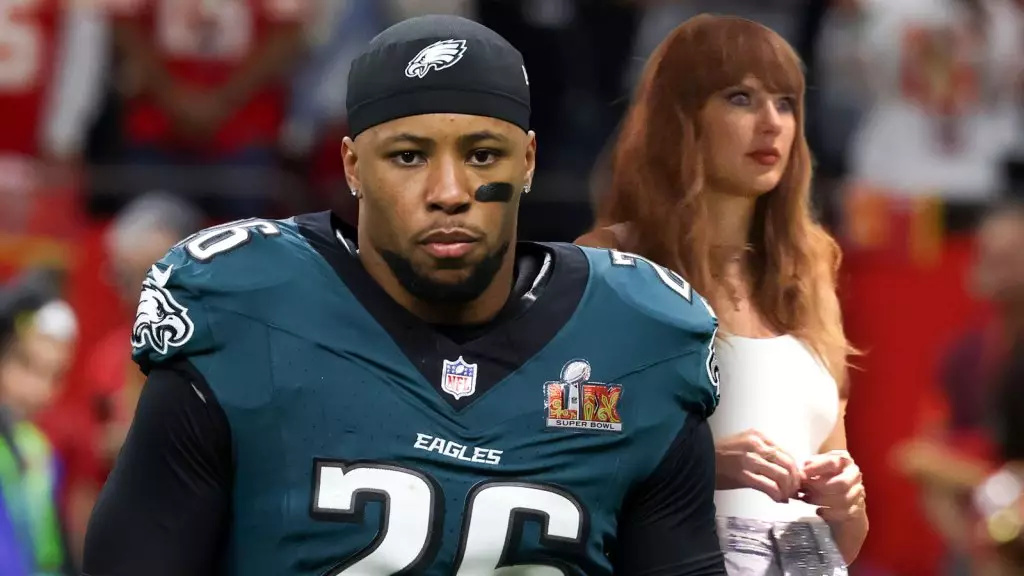In the intense world of professional sports, fan reactions can often be as unpredictable as the games themselves. The recent Super Bowl highlighted this phenomenon, especially when Taylor Swift, a cultural icon and pop sensation, was met with boos by the Philadelphia Eagles fans present at the event. Saquon Barkley, a prominent running back, stepped into the fray to defend Swift during a candid discussion on The Howard Stern Show. His defense of the singer not only reflects the complexities of celebrity but also touches on the broader implications of sports, music, and cultural crossover.
Barkley expressed his bewilderment at the crowd’s response, saying, “I don’t get it. I don’t get why she was getting hate there.” This statement encapsulates a common struggle for artists who engage with sports culture; they often find themselves in the crosshairs of passionate fan bases. While football fans, especially those of the Eagles, are known for their fervor, the hostility towards Swift raises questions about the intersection of sports entertainment and celebrity culture.
Swift’s presence at the Super Bowl was not merely coincidental; she was there supporting Travis Kelce of the Kansas City Chiefs. In his comments, Barkley emphasized the positive influence Swift has on the sport, noting her role in expanding the game’s reach and appeal. “She’s made the game bigger,” he insisted, highlighting how her fandom could contribute to the NFL’s ongoing efforts to internationalize American football. By participating in high-profile events, stars like Swift help to bridge gaps between different entertainment sectors, showcasing how music and sports can elevate each other.
The reactions to her appearance also speak volumes about the dichotomy in public perception of celebrities in sports settings. While Barkley articulated support and advocacy for Swift’s engagement with football, others, such as former President Donald Trump, opted for ridicule. Trump’s comments on social media showcased the divisive nature of celebrity endorsement and fandom, where admiration for one figure can often translate into disdain for another. His mocking remarks contrast sharply with Barkley’s more unifying and appreciative stance, revealing the varied landscapes of public opinion.
The backlash against Swift may reflect broader societal themes, including how successful women in entertainment are often scrutinized more harshly than their male counterparts. Barkley’s defense of Swift serves not merely as a support for one artist but is also a critique of the unfounded negativity that can arise in competitive environments. The debate surrounding this incident encapsulates the need for respect and unity in the face of passionate rivalry.
Ultimately, the confrontation of celebrity and sports fandom raises essential questions about how we engage with public figures who cross into our worlds—whether through music, sports, or otherwise. As we dissect the reactions to Swift’s presence at the Super Bowl, we must consider the implications of our fandom and the narratives we create around the public personas we cherish or disparage. In an era where cross-cultural influences shape experiences, embracing varied interests can enrich our appreciation for both music and sports, fostering a collective spirit rather than division.


Leave a Reply